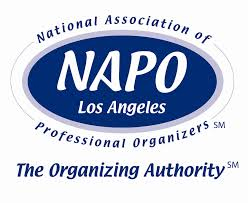The Mass-Media Madhouse
(Press-Central For Handy Soundbites, Useful Info,
And A Good Wet-Your-Pants Laugh)
Home / The Mass-Media Madhouse
(Press-Central For Handy Soundbites, Useful Info,
And A Good Wet-Your-Pants Laugh) / WBCCI Blue Beret Magazine / As Published In WBCCI Blue Beret Magazine --
Mobile Money Management
As Published In WBCCI Blue Beret Magazine —
Mobile Money Management

It might seem obvious that sound money management should be on your list of concerns when trying to live frugally as a full-timer — it’s no fun to travel when you’ve got financial worries following you around the country. But you would be amazed at the numbers of RVers who allow disorganized recordkeeping, money leaks, wasteful spending, and unnecessary debt sabotage their dreams of mobility and financial freedom.
Pay Off Your Debt, Now
Your first priority on the road to financial in-dependence should be to become debt-free. If you want escape this particular financial yoke, it’s time for drastic measures — eliminate as many of those “luxury” expenses as you can manage for a few months, then focus all of your financial energies on paying off your liabilities. Plan to knock out the highest interest debt first, then move to the next highest and the next, until you have cleared them all out — no excuses, no rationalizations, just do it!
Set Up Auto Bill-Payment
So much of our money is wasted on unnecessary late fees — but ironically, these penalties are rarely due to a lack of funds, and more often caused by financial disorganization. How often have you been hit with a big fee because you forgot to submit payment on time, the bill was delayed arriving from your mail forwarding service, or you misplaced it in a pile while you were traveling? The easiest way to avoid this problem is to simply set up recurring auto-pay through either your bank or each individual vendor account.
Keep Track Of Your Spending
You don’t need a complicated bookkeeping program — just set up a spreadsheet, listing each of the major categories of expense in your life (food, clothing, household supplies, auto, insurance, entertainment, medical, whatever). Then estimate how much of your monthly income you can AFFORD to spend on each, then compare that to what you ACTUALLY spend — it’s the only way to really know whether or not you’re overstepping your financial bounds.
Pay Attention To Your Taxes
A lot of people think it’s a good thing to get a big refund check come April 15th, but it’s silly to treat the IRS like a savings account when you’re getting no benefit from your money. If you reduced your withholding and had that money in your hand throughout the year, you could at least put it in a savings account that pays interest and get some kind of return on your investment. The best strategy is to simply send in a check at the end of the year, and only pay exactly what you owe.
Be Careful About Fees
If your bank charges overdraft fees, see if you can use an advance from a credit card or savings account to cover any check that might otherwise bounce — if you get hit with a double fee for using another bank’s ATM, take a second to locate a fee-free machine before extracting cash — shop around to avoid charges for a low balance, an excessive number of transactions, or “extra” services. And there’s no reason on earth to pay an annual fee for a credit card, exorbitant rates for foreign transactions, cash advances, or balance transfers.
Ask For Discounts
Many of the companies with whom you currently do business offer unadvertised discounts, so get in the habit of quizzing them about your options. Can you save on insurance rates by having all of your policies under one carrier? Because you have a smoke detector or car alarm? Will your doctor give you a better price on health care services if you pay cash up front and file with the insurance company yourself? Can you get a break on a monthly service if you pay for a year’s worth in advance? You’ll never know if you don’t ask!
Click here for reuse options!Copyright 2001 RamonaCreel.com
 PS: Wanna instantly rack up some serious virtual cred? I've made it easy for you to share this content with your social networking friends, e-mail it to your peeps, or republish it in your own blog (thereby showing off how smart you are) with these links.
PS: Wanna instantly rack up some serious virtual cred? I've made it easy for you to share this content with your social networking friends, e-mail it to your peeps, or republish it in your own blog (thereby showing off how smart you are) with these links.
(iCopyright widget here)
"I Have More To Say About This... No Surprise!"
If you would like to reprint this page, please contact me
Comments are closed.





